|
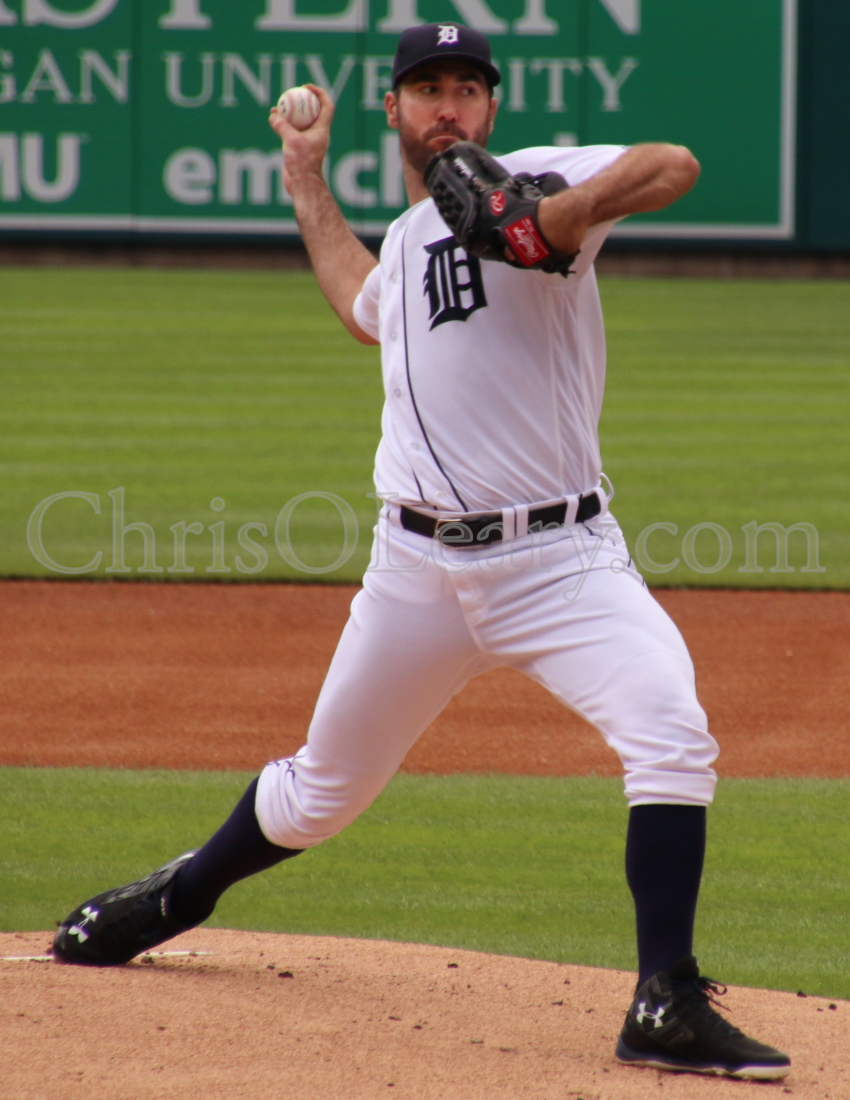 Who
has the best pitching
mechanics in baseball? The answer to that question used to be simple, because he's still active. Who
has the best pitching
mechanics in baseball? The answer to that question used to be simple, because he's still active.
Justin Verlander.
And then JV went and changed his pitching mechanics.
And he broke.
Completely predictably.
November 13, 2019
So, while pre-2020 Justin Verlander is still a good answer to the question
of who has the best pitching mechanics, we now have to go back into
the history of the game to get an answer.
Who Has the Best Pitching Mechanics?
Where have all the Nolan Ryan's, Tom Seaver's,
and Greg Maddux's gone?
They've been ruined.
Coached out of their natural movements.
Just as Justin Verlander was.
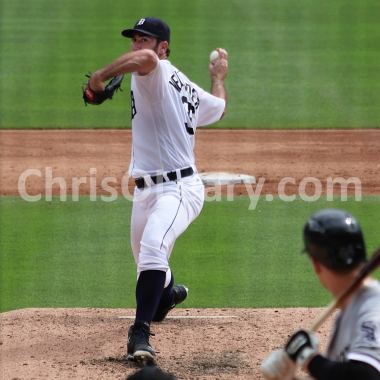
Justin Verlander
2016
Prior to 2020, JV was the only pitcher at the MLB level who
(still) moved naturally.
Like a starting pitcher.
Like Ryan, Seaver, and Maddux — and Bob Gibson, Mariano Rivera,
and so many other greats from the past — and all the other
dominant and durable greats of the past.
And then
Ron Wolforth told Justin Verlander he needed to change his pitching
mechanics and become more consistent with the conventional wisdom.
To fix a phony flaw called
Forearm Flyout.
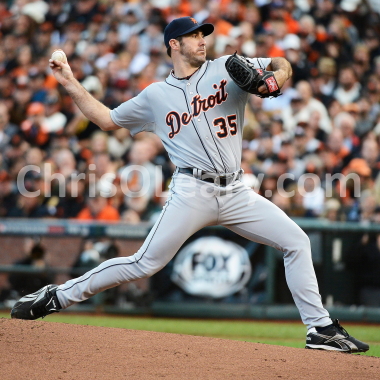
Justin Verlander
Which led him to break.
I get into the details of why Verlander came crashing down to earth in detail in
Pitching
Mechanics: The Problem and
Justin Verlander: What Happened but in this piece I want to discuss
what JV did — or was doing — right.
And what changed.
Nolan Ryan
Why was Nolan Ryan both dominant and durable?
Far more so than modern pitchers?
Because he was a freak, right?
Wrong.
Nolan Ryan was more dominant and durable than modern
pitchers because he moved better than them.
More naturally.
Understanding why Nolan Ryan was so much more
durable than modern pitchers starts with his
Timing; with the position of his pitching arm at the moment it
starts to come under load.
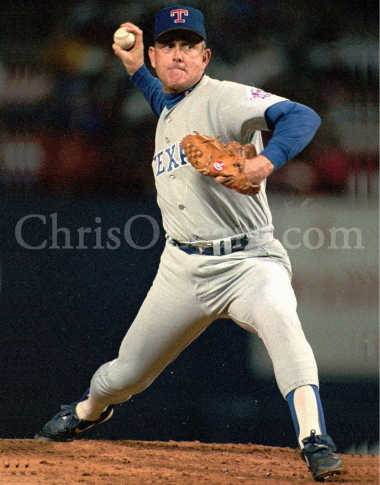
Nolan Ryan
In the picture above, notice how, as his front foot is planting,
Nolan Ryan's pitching arm is almost UP.
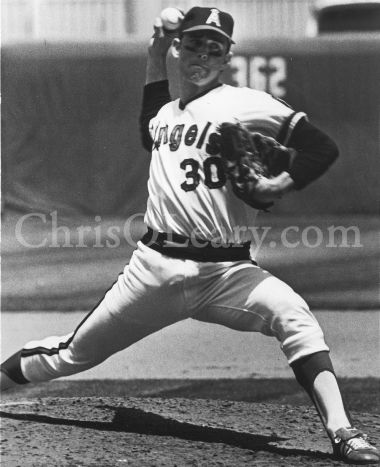
Nolan Ryan
That meant that, when Nolan Ryan's front foot planted, and his
shoulders started to turn, his pitching arm was in the proper
position to handle the resulting loads.
Tom Seaver
Similarly, if you look at the pitching mechanics of
Tom Seaver, you'll see that his pitching arm is UP when his shoulders start rotating.
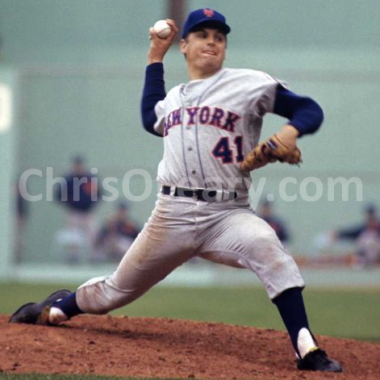
Tom Seaver
Justin Verlander
Why did Justin Verlander have some of the best
pitching mechanics?
Because he moved like Nolan Ryan, Tom Seaver,
and the other greats of the past.
Completely naturally.
And well.
And why did he break?
Because he got away from those pitching mechanics. In order to
become more consistent with the conventional wisdom.
Which should tell you something about the conventional wisdom
about pitching mechanics.
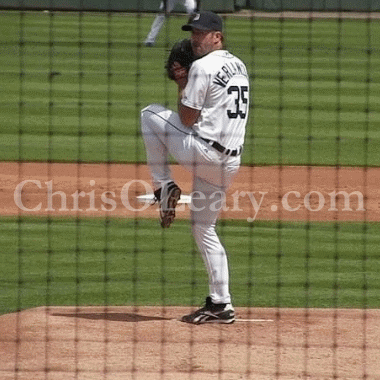
Justin Verlander
2012
I first really zeroed in on Justin Verlander with this 2012 clip, which
is one of my favorites and the one that opened my eyes to the wisdom of
Scap Loading.
And then, in 2014, Justin Verlander got hurt.
In sum, what I think happened is that the only
thing I don't like about his pitching mechanics, what his
front leg and knee are doing in Frame 89...
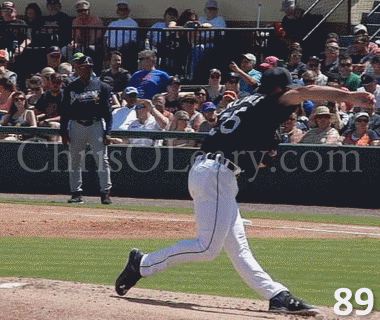
Justin Verlander
Frame 89
...caused a core injury — twice, now — leading to
problems up the kinetic chain.
In 2016, I went to Spring Training hoping to see the Justin
Verlander of old.
I was not disappointed.
So what's so great about the pitching mechanics I saw on display in
2016?
Proper Pitching Mechanics
When I look at Justin Verlander's 2016 pitching mechanics, I see
a pitching who is moving completely naturally.
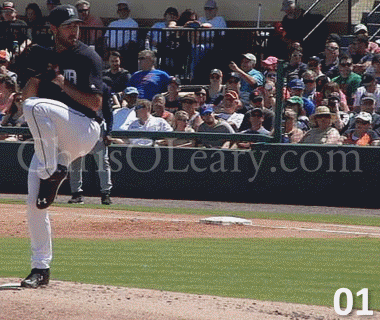
Justin Verlander
2016
Justin Verlander isn't using any of the tricks and shortcuts that have become
established as the conventional wisdom.
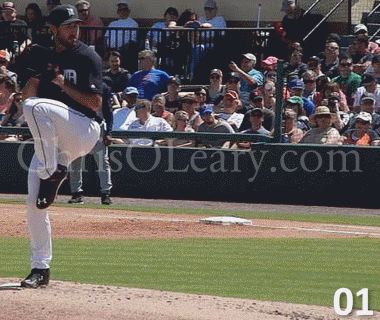
Justin Verlander
Frame 01
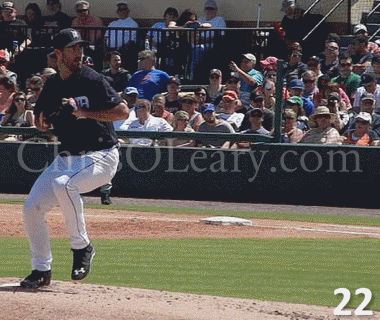
Justin Verlander
Frame 22
In Frame 22, Justin Verlander has completed the Drop portion
of the Drop & Drive movement and is just about to start to Drive
towards home plate.
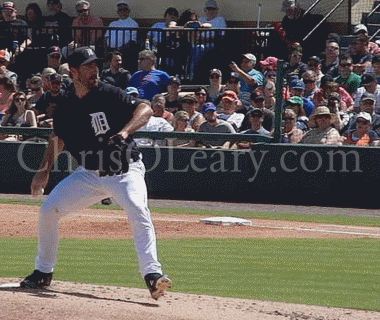
Justin Verlander
Frame 39
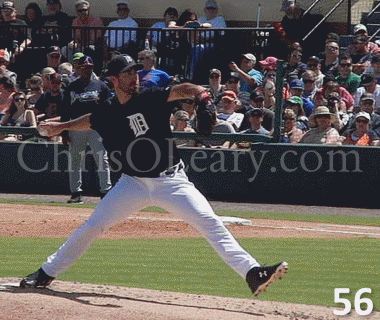
Justin Verlander
Frame 56
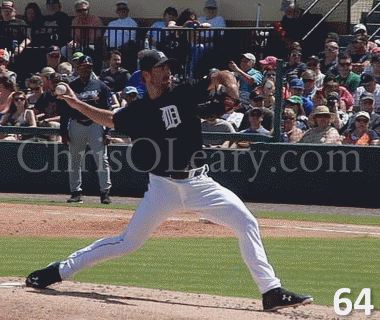
Justin Verlander
Frame 64
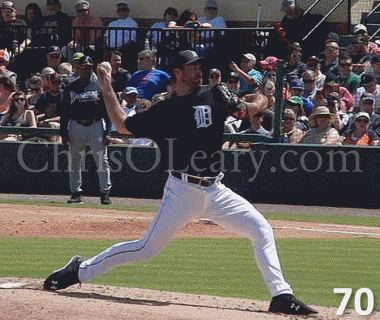
Justin Verlander
Frame 70
Frame 70 is where we can see Justin Verlander's excellent
Timing. His front foot is down, his shoulders are just about
to start turning, and his pitching arm is UP and ready to accept
the load.
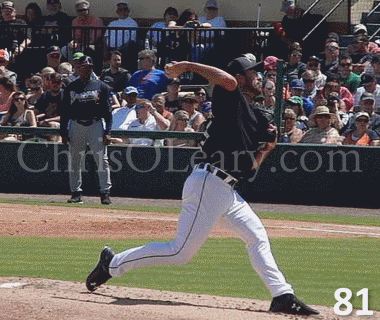
Justin Verlander
Frame 81
In Frame 81, Justin Verlander's pitching arm is at maximum
External Rotation, laying back towards second base.
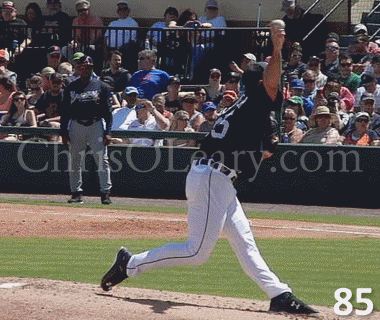
Justin Verlander
Frame 85
In Frame 85, Justin Verlander is just about to release the
ball. Notice that, while some say that pitchers need to keep
both feet on the ground, Verlander's back foot is (slightly) up
in the air, which is perfectly normal.

Justin Verlander
Frame 89
Frame 89 shows the only concern I have with Justin
Verlander's pitching mechanics; the way he (hyper) extends his
front knee and leg which, I'd suggest, is related to the
problems he has had with his core in 2014 and 2020. While this
works, it's not necessary.
Where to go from Here
I have put together a number of free and other pieces for
people who want to dive into the topic of pitching mechanics.
Pitcher Injury Predictions
Since 2006, I have been making predictions about which
pitchers I think are more, and less, likely to experience injury
problems.
I mention this because I believe it establishes that I have a
deep understanding of pitching mechanics and injuries; you have
to understand a system in order to make accurate predictions
about it.
Professional Pitcher Analyses
In order to help people understand how major league pitchers
actually throw the ball, I have created a
number of analyses of the
pitching mechanics of major league
baseball pitchers, including...
|

















